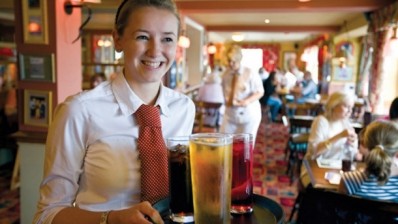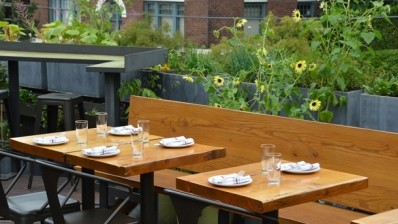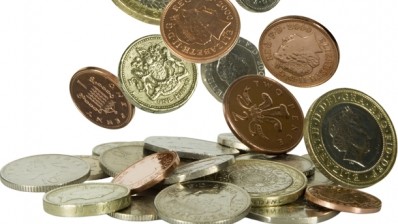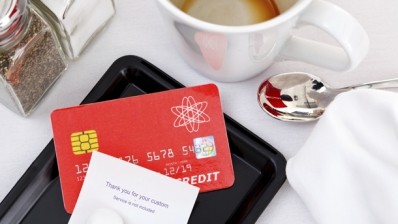News Analysis
Tip of the iceberg: what do Government proposals mean for the industry?
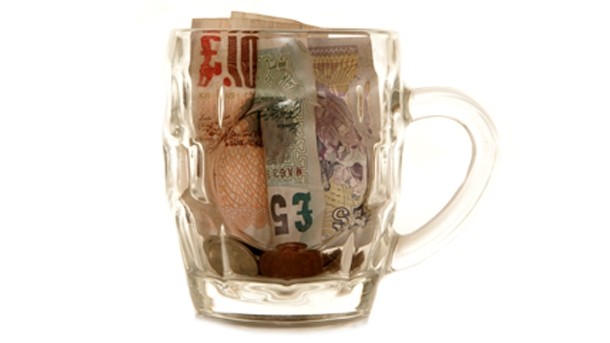
When several major chains were found to be withholding staff tips last year, the hospitality industry suddenly became the focus of intense scrutiny over how tips were distributed among staff and whether the current tipping system in the UK is the best possible option.
This culminated in the business secretary, Sajid Javid, announcing this week the beginning of a two-month consultation period during which the Government would consider how best to crack down on businesses employing unfair tipping practices and increase transparency.
Options the Government will consider include making the current voluntary code on tipping statutory, meaning it could be then be used in court and other legal proceedings, and encouraging businesses to adapt tronc systems, which distribute tips according to agreements between employees.
Welcomed
Response across the sector has been largely warm. The British Hospitality Association (BHA), which had already called on the Government to introduce legislation forcing operators to disclose how tips were distributed to customers during a previous 'call for evidence' on the issue, said it welcomed the move towards further transparency.
The Sustainable Restaurant Association (SRA) took a similar stance, citing previous research backing the importance of how staff are treated as one of the key sustainability issues diners look out for when choosing where to eat. A lack of transparency would be bad for the industry in the long run, it warned.
However, the Association of Licensed Multiple Retailers (ALMR), was slightly more cautious in its appraisal of the Government's plans, reporting that it had surveyed approximately 7,000 of its members and found no signs of abuse among any of them.
Chief executive Kate Nicholls said employers should have "freedom and flexibility" to reward all team members rather than just an individual member of staff.
The fact that more and more customers were choosing to pay for meals and service with credit cards, which must be processed through the business's payroll, as opposed to cash tips – which staff are obligated to declare themselves – had created some confusion, she said.
"We welcome measures to increase transparency. It means there will be a deduction, but it means that everyone receives a fair share. No company should be profiting from tips and service charges, but equally no company – particularly small businesses – should be penalised for collecting and processing tax on behalf of the Government."
Big issue
But is tipping as big an issue for the pub sector as it is for restaurants?
While it almost certainly is for higher-end gastropubs that offer table service, traditionally food and drink is paid for at the bar in the majority of the country's pubs – placing less of an emphasis on the tip as a form of feedback on staff performance because it's already been given by the time guests sit down to eat.
However, distribution is still an issue for establishments where a tip is given at the bar – arguably the chef, who will most likely be on the same basic salary as the front-of-house staff, is entitled to a segment of that tip because they are the one who is actually producing the food.
Unite, one of the country's largest unions, hailed Javid's announcement as a revolutionary victory for hospitality workers and called on the Government to swiftly enshrine fairer tipping practices in law.
Independent tronc systems
It told the Publican's Morning Advertiser it was seeking transparent and "genuinely independent" tronc systems by which font and back of house could negotiate tip distribution free of employers' influence.
It was "patently obvious" that too many employers did not respect the word or the spirit of the voluntary code, it said.
A number of high-profile figures in the industry including prominent food critic Jay Rayner have called for an end to tipping altogether – the rationale being that pubs and restaurants could raise prices in place of accepting gratuities, paying their staff a "dignified" wage, higher than those typical in the industry.
But Nick Gibson, owner of the Drapers Arms, Islington, north London, said a change would hurt staff because there was no way everyone, industry-wide, would increase prices – pressurising staff income, industry margins and doing away with the "incentive feedback mechanism".
However, Rayner defended his views against criticism by stressing that for a blanket ban on tips to work, it would require a major cultural change by which price rises would guarantee staff higher pay.
He wrote in The Guardian: "Either we regard waiters as literally servile, to be rewarded at our whim. Or we think they have the right to the dignity of a wage that's both reliable and reasonable."
Tax authorities
VAT also poses a problem for those who would seek to abolish tips. Tips, under the current system, are exempt from the tax. Rayner has argued that an agreement could be reached with tax authorities for a lower rate of VAT – he proposed 17.5% – for hospitality businesses.
Gibson has also pointed to the fact that service charge and tips do not incur national insurance for the employer or employee.
He explained on his blog: "The same gross income numbers delivered through wages as previously via a combination of wages and tips would actually be a net reduction for staff and generate a further additional cost for employees.
"That is just the numbers – I also believe that service charge and allowing people to tip brings a positive direct connection between the staff and guest. Positive and negative feedback is immediate and staff feel very incentivised to provide better service in the hope of immediate reward.
"And also because – if people come back or encourage others to visit – the business grows in turnover and they participate in that success."
Stosie Madi, chef-patron of the Parkers Arms, Lancashire, said she agreed with the move to ban tips on a moral basis but that she thought it was ultimately unrealistic.
"It's been a hard move paying everyone the living wage along with the new pension scheme contributions and with the usual national insurance contributions – which have gone up due to the living wage – but we have done it.
"Banning tipping would mean that extra money used to incentivise staff is gone – I think tipping should be a voluntary thing for the customer."
Major risk
It would be a major risk for small businesses to increase their prices and pass it on to the customer, she said.
"We really would lose custom as an independent small business fighting it out with chains and multiple operators. It's hard enough dealing with the 20% VAT – there should be more help from the Government for small businesses to pay hospitality staff better. Instead, it feels like we are penalised at every turn."
It was also important to define the difference between tips and service charge, she said, adding that she did not feel as a rural, Northern pub, that adding an additional – albeit optional – charge would play the same at the Parkers Arms as it would with customers in London and the south.
Whatever the outcome of the consultation period, the press surrounding the issue has considerably increased the scrutiny that employers – small and large – over the way they distribute their tips. It's only fair.
